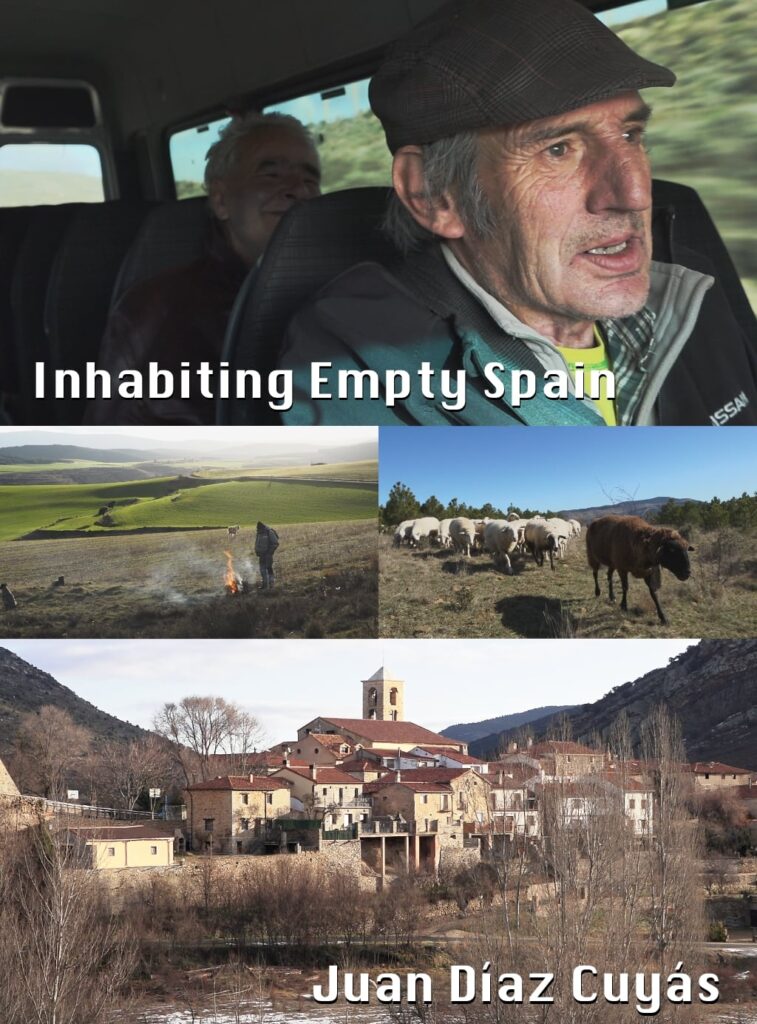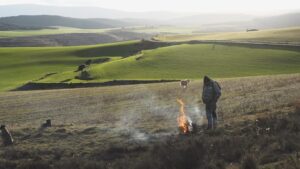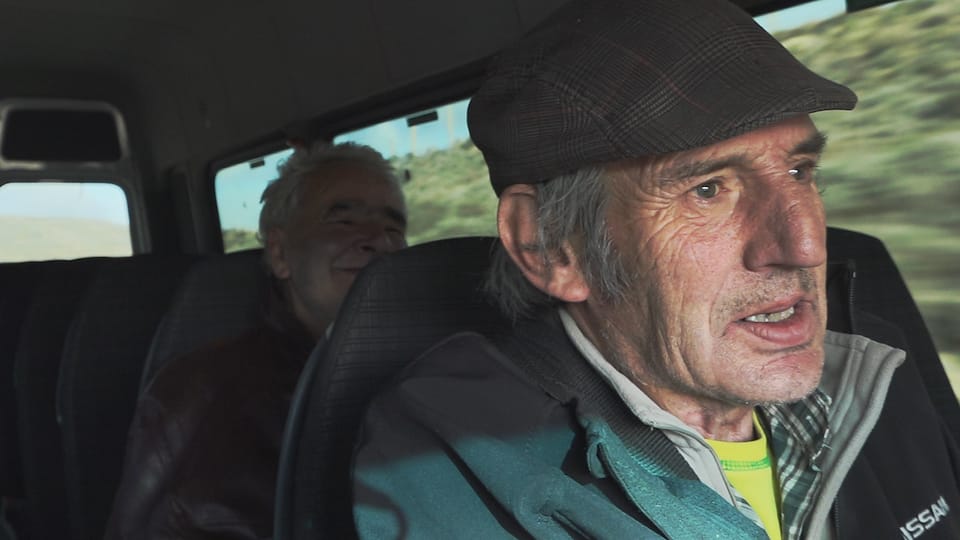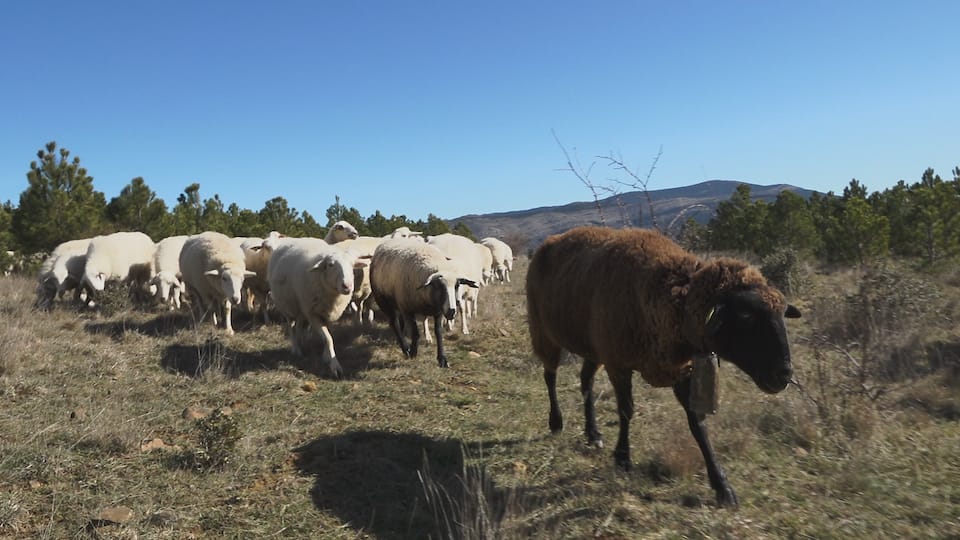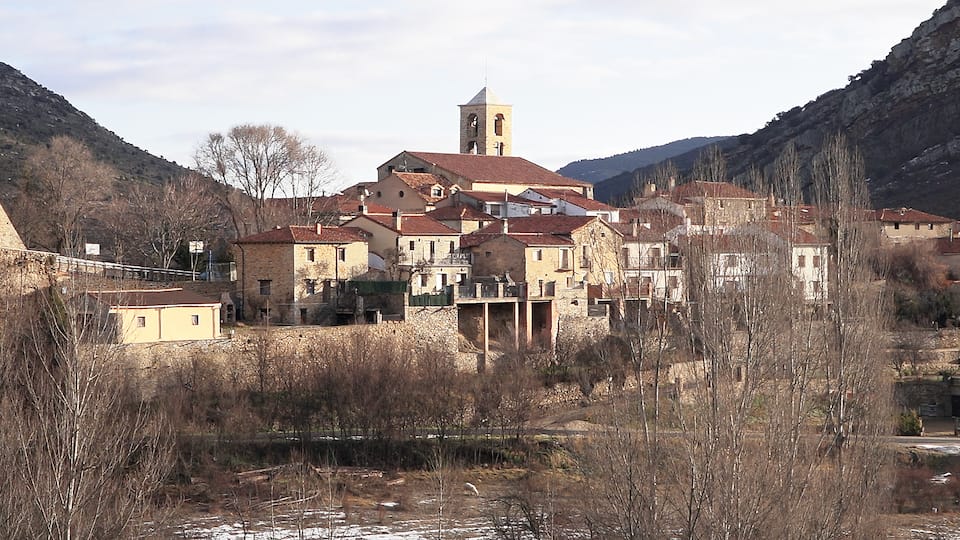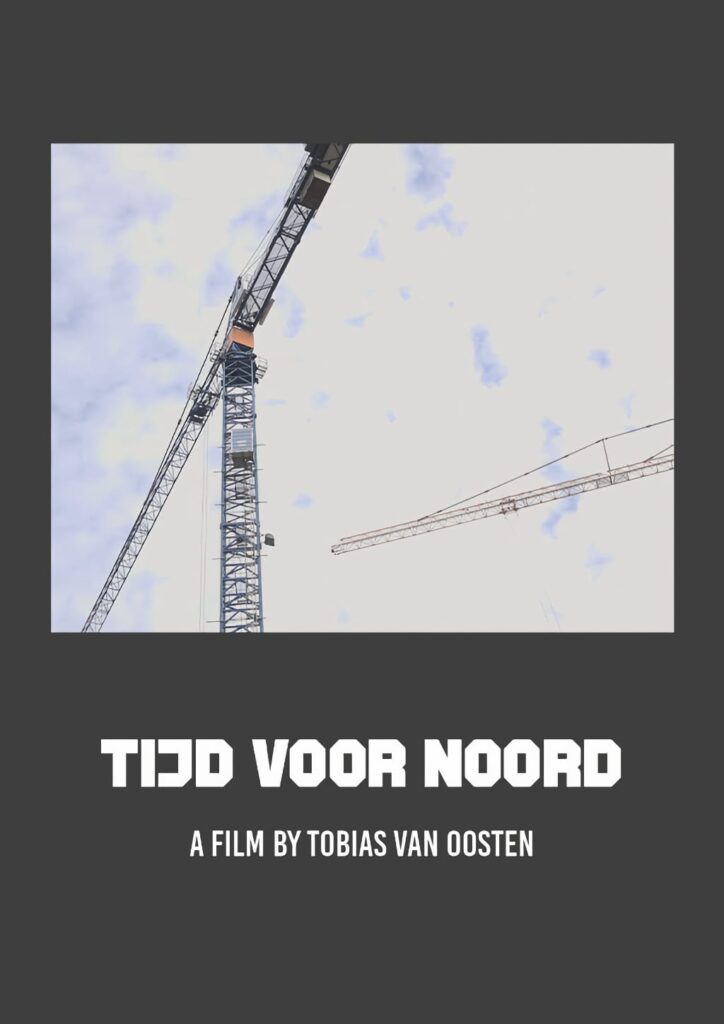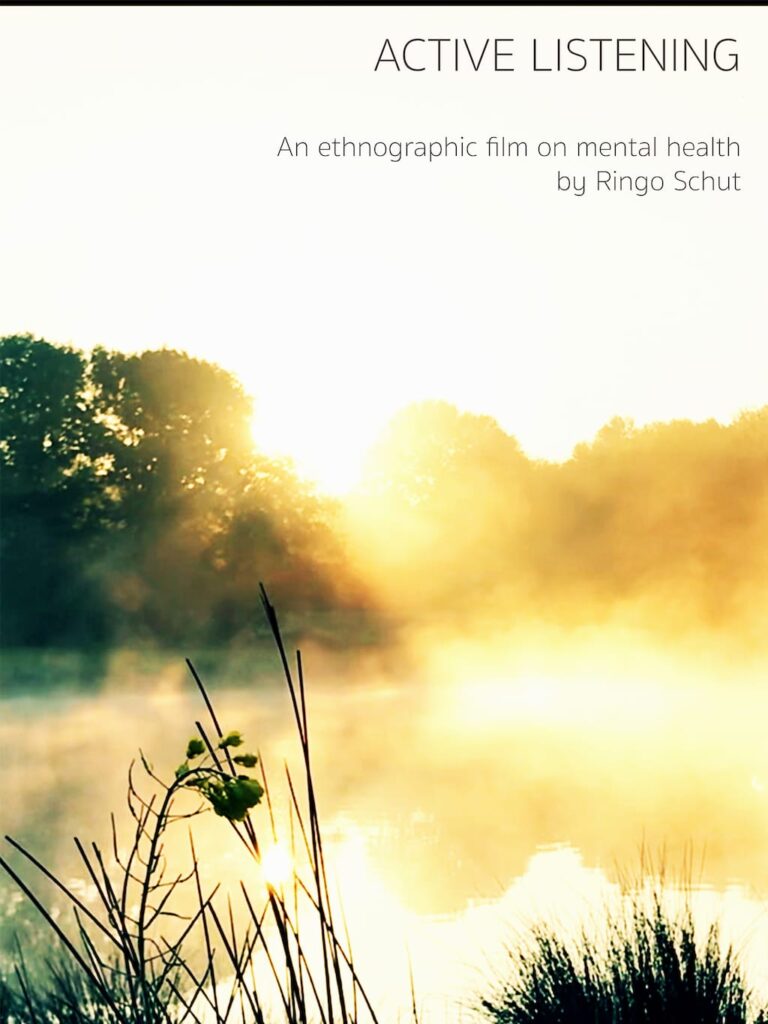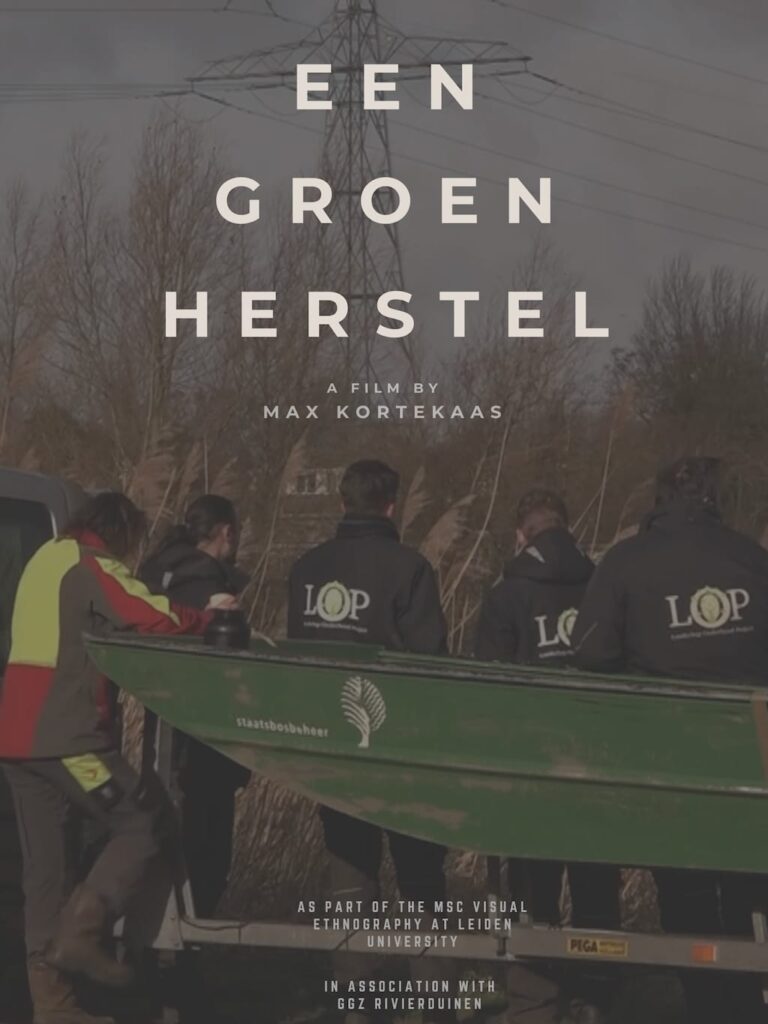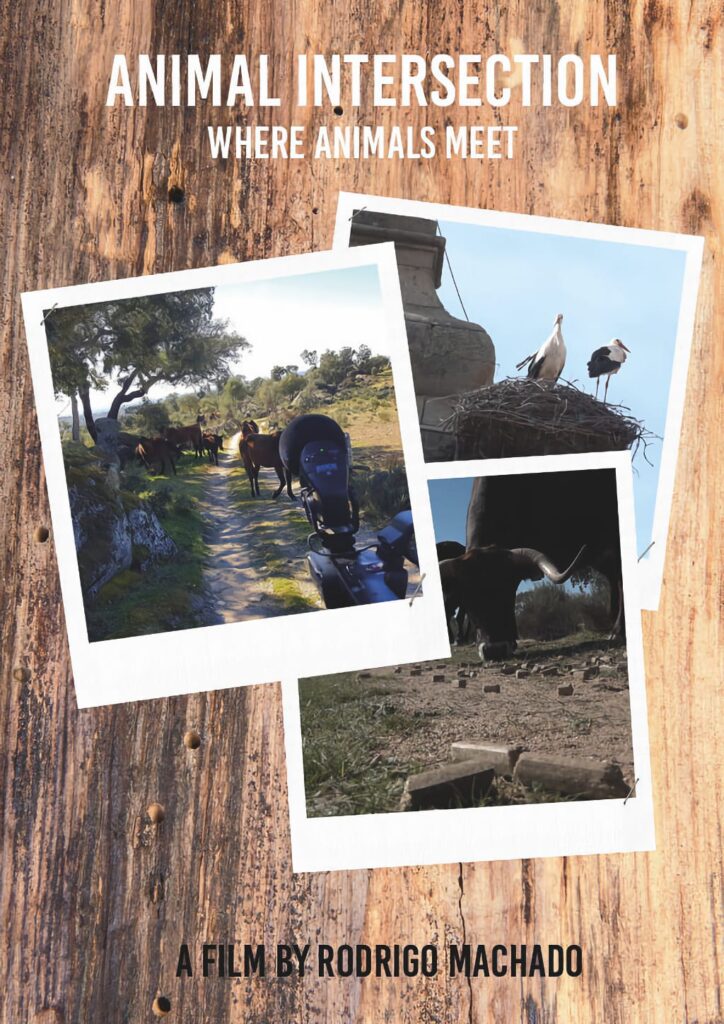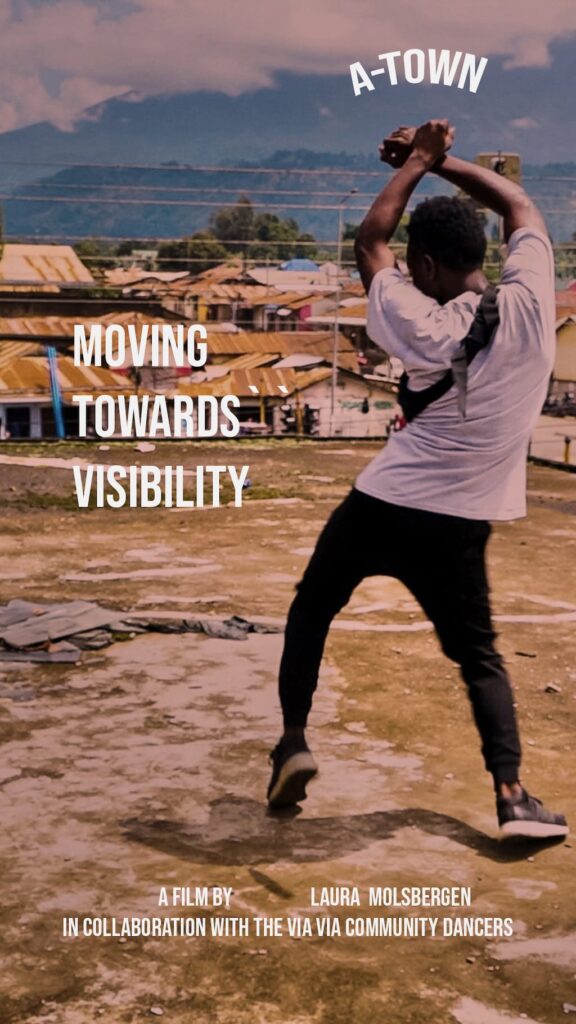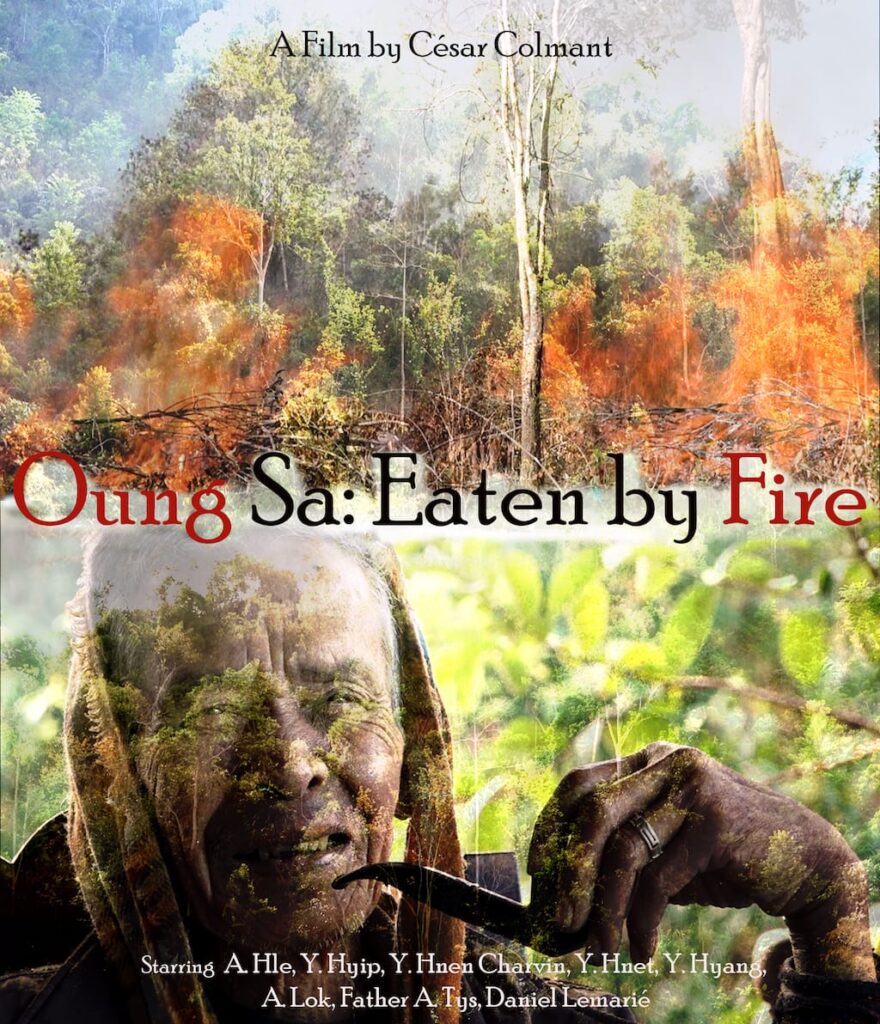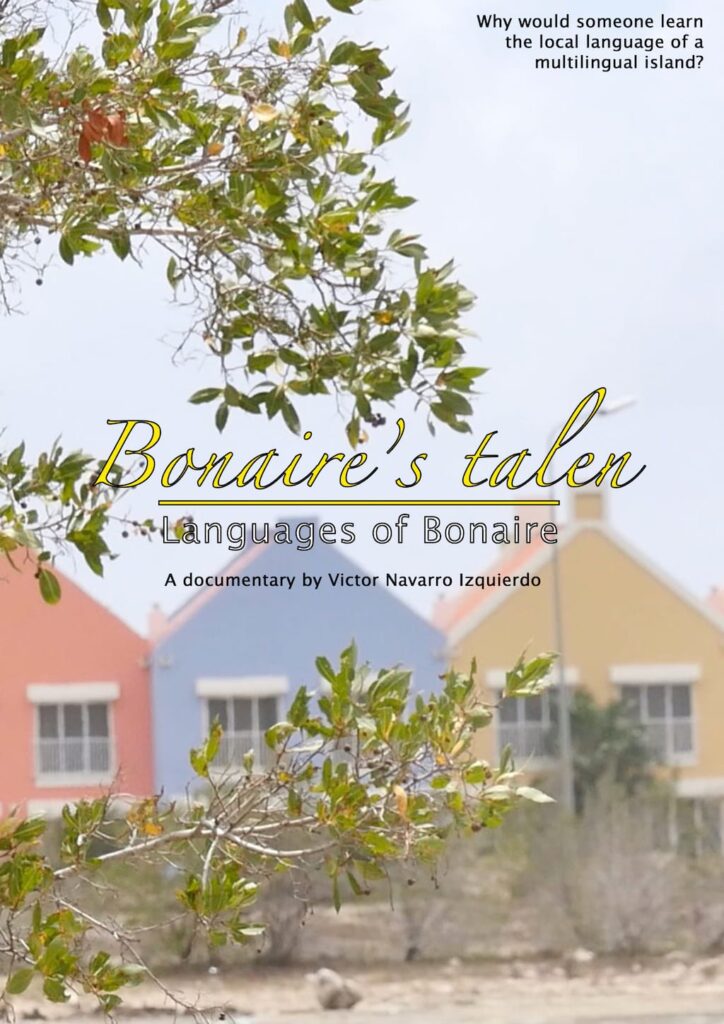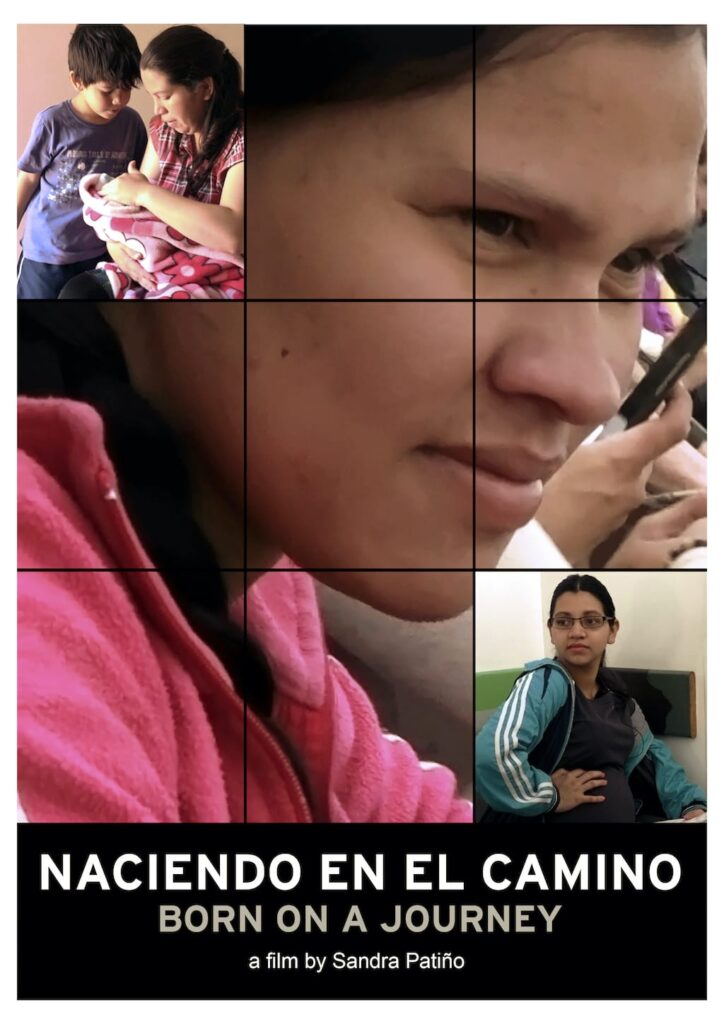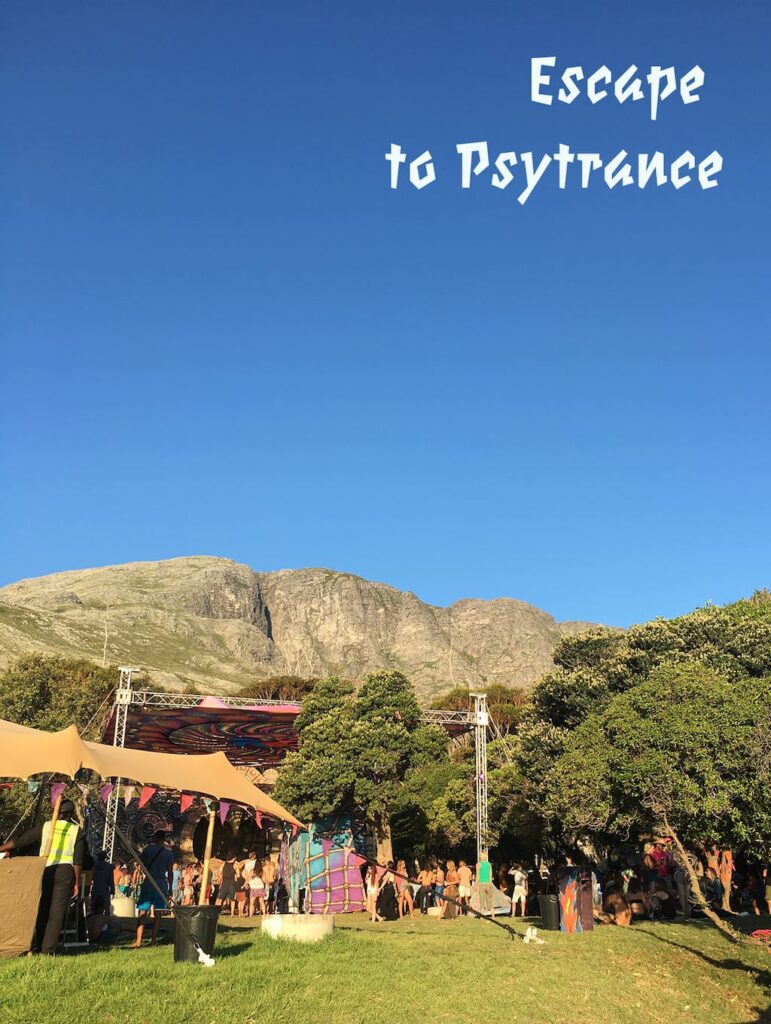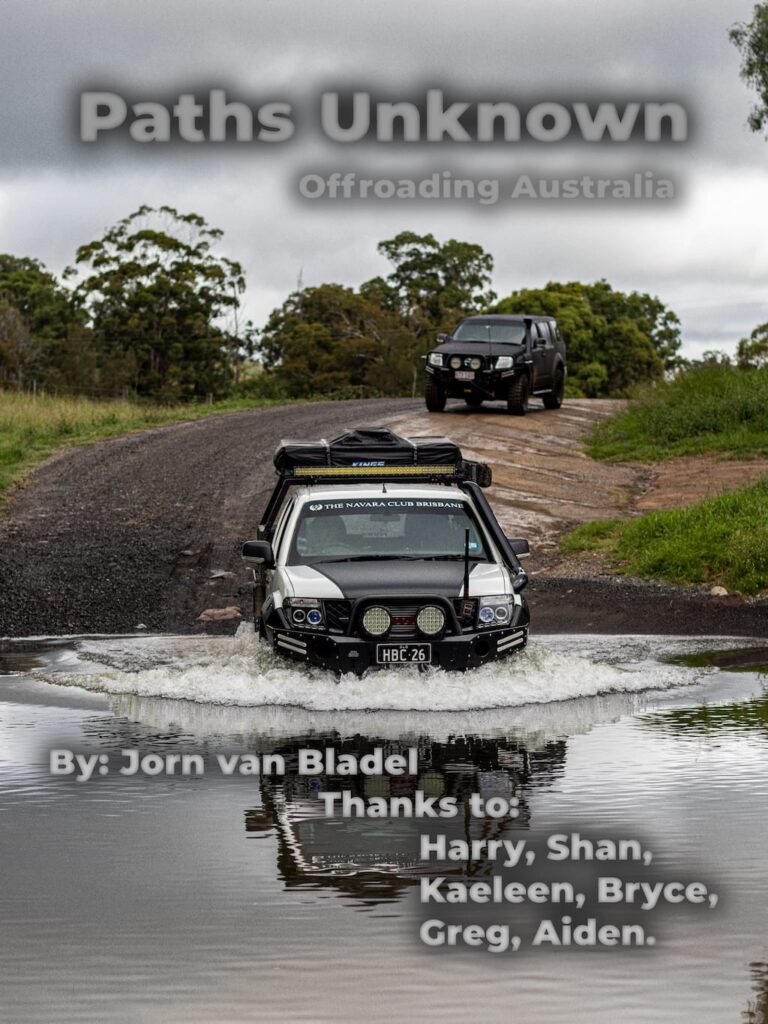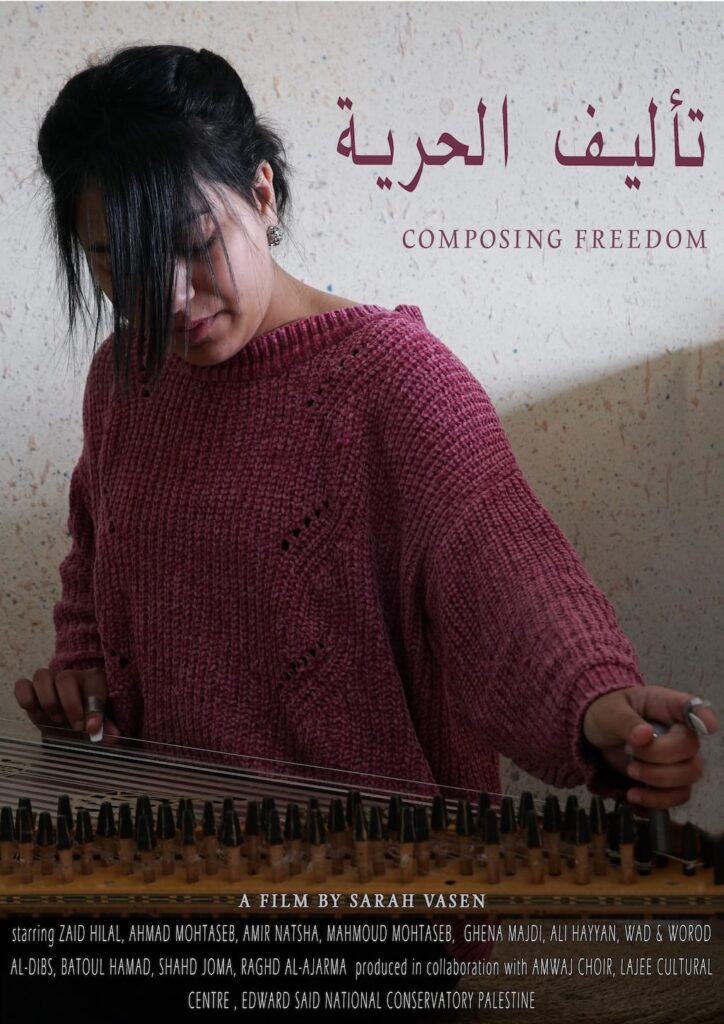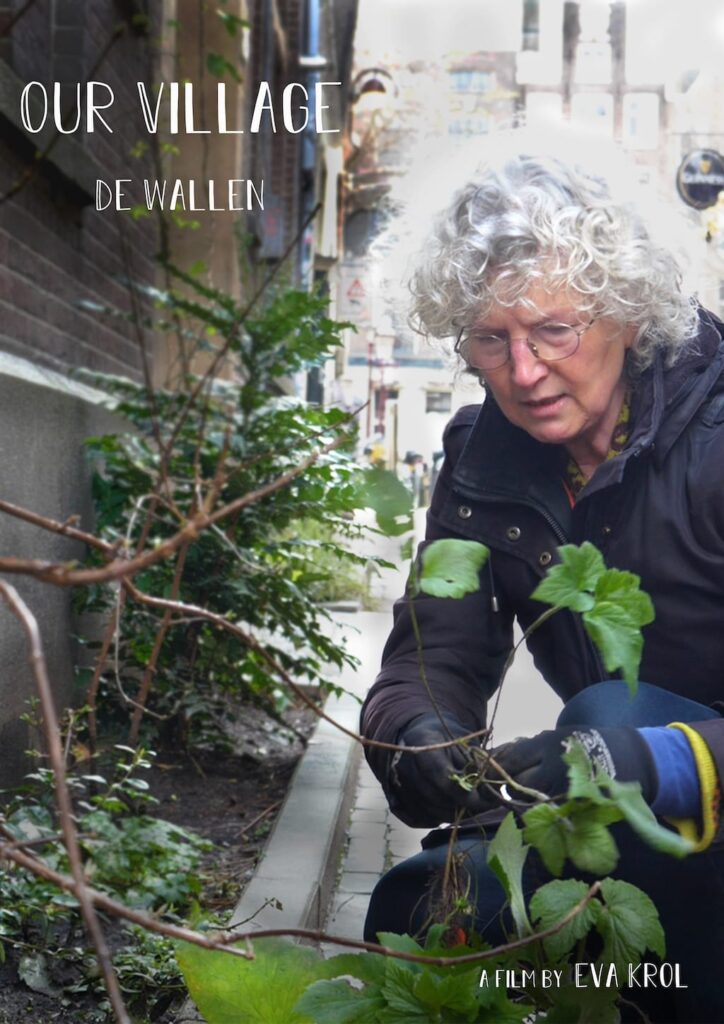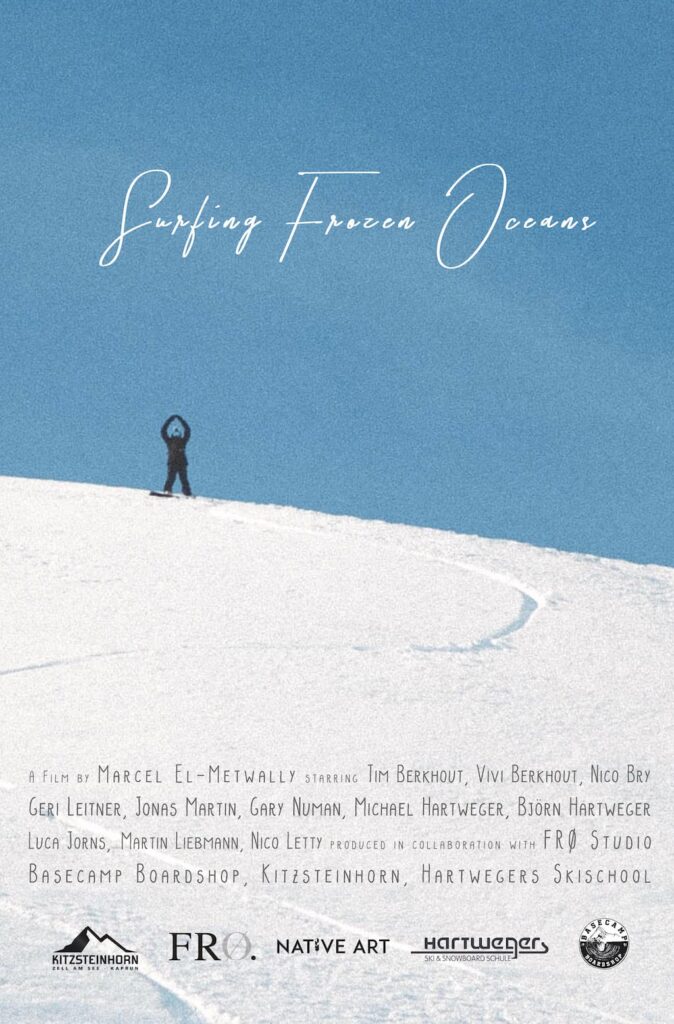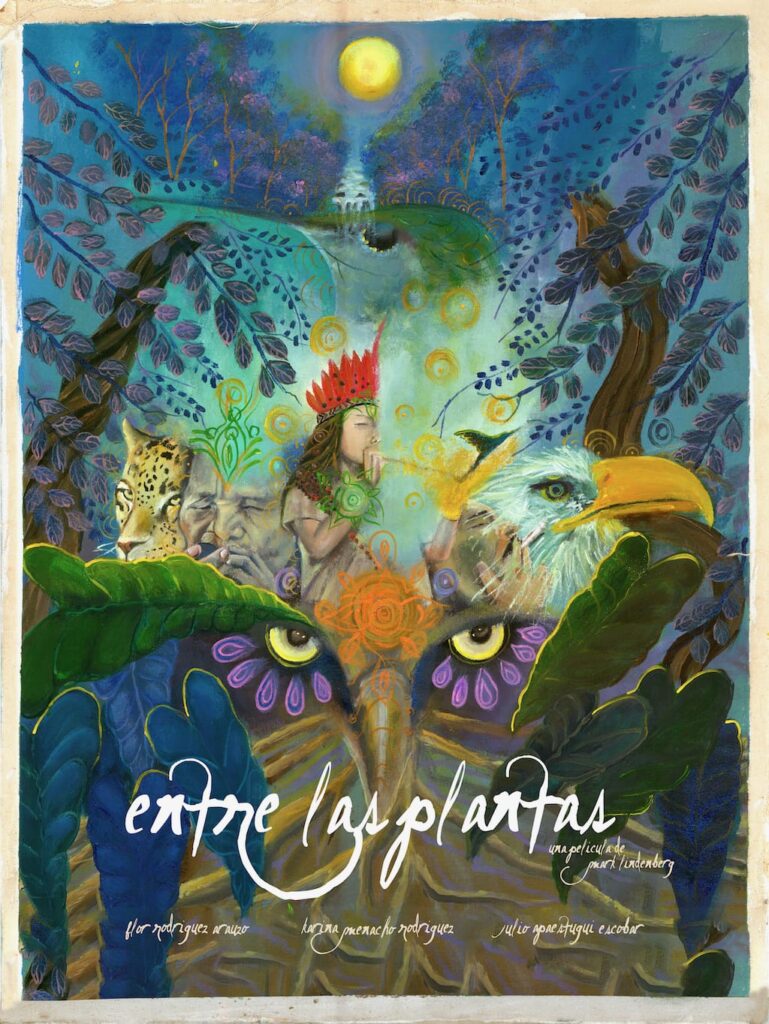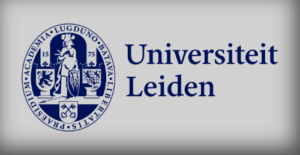Screenings at LIDO cinema in Leiden on 7, 8, 9 October
Each year we roll out the red carpet for students in the Visual Ethnography Specialization of the masters program in Cultural Anthropology and Developmental Sociology to present their thesis films and multimodal outputs to the general public.
Please join us in celebrating these innovative and sincere portrayals of life on planet earth
Film Program
The Films
Inhabiting Empty Spain by Juan Díaz Cuyás
For decades Spanish hinterland has declined due to a process of migration from the countryside to cities, leaving a trail of empty villages. The lack of services and job offers is one of the problems and causes of this phenomenon. However, in this context of job insecurity and demographic decline, some people struggle to sustain a life in these places. Inhabiting Empty Spain is an ethnographic film that explores the reality of the people living in a depopulated village in Tierras Altas (highlands), north of Soria.
Watch the movie
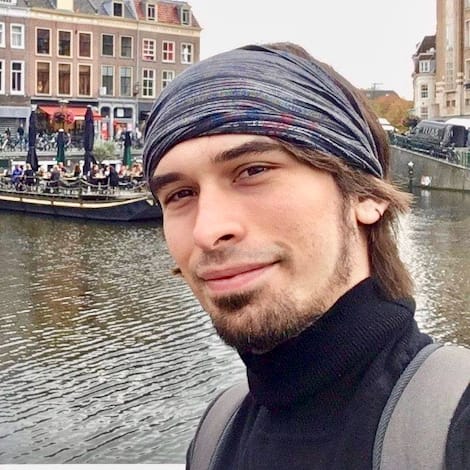
Juan F. Díaz Cuyás is a Visual Anthropology student temporarily based in Yanguas, Spain. He has recently finished a master’s degree in visual Ethnography at Leiden University and previously in Social and Cultural Anthropology by Autonomous Barcelona University and Maynooth University. He is a filmmaking and photography enthusiast who aspires to do a PhD in Anthropology using audiovisual techniques as researching methodologies. He has worked in a rural development project in India, photographing the water shortage issue in communities in Bangalore’s rural areas. In the short term, he seeks to start designing a photography project to overcome this year’s indeterminacy (we can do it!).
Tijd voor Noord by Tobias van Oosten
In Tijd voor Noord (Time for North), we bike along with Lucas, a young activist, through Amsterdam North. Being immersed in a rapidly changing urban landscape, this bike ride takes us to changing parts of Amsterdam North. The film draws upon collaborative and historic photographs to establish a link between an industrial past and a present targeted by Gentrification. Throughout the film Lucas meets up with residents who are dealing with the changes bound to Gentrification, as the audience gains insight into the impact these changes manifest on their lives.
Watch the movie
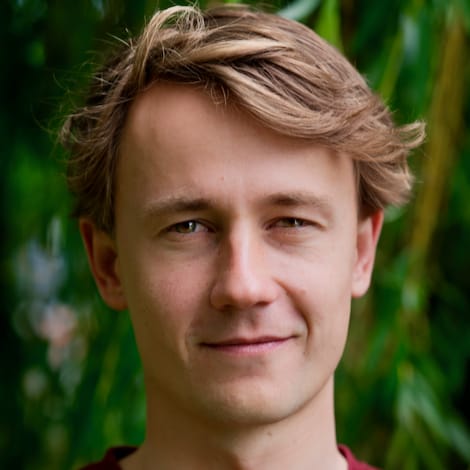
Tobias van Oosten is a recently graduated Cultural Anthropology student obtaining MA in Visual Ethnography at the university of Leiden, and a BA in Cultural Anthropology at the Vrije Universiteit of Amsterdam. Now venturing into the usage of visual methods as film and photography as a complement to ethnographic methods. Past research projects have involved Ethnographic research of a city bound to tourist development in Bahia, Brazil. Here the author explored forms of segregation, and neighbourhood identities. His latest work, the Ethnographic research and documentary Time for North, explores the way Gentrification influences lives of older neighbourhood inhabitants of Amsterdam North.
Active Listening by Ringo Schut
A part auto-ethnographic experimental film about the act of listening to people who struggle with mental health challenges on a long-term basis, made by Ringo Schut. The film follows the maker and four other persons while they explain part of their experiences and how they cope with their situations. The result is a film that looks at people’s experiences with mental illness, the meaning of health and ways to cope and help each other. Through the use of montage, self-made music, experimentalism and deep interview focus, five people separately tell a shared story about different experiences.
Watch the movie
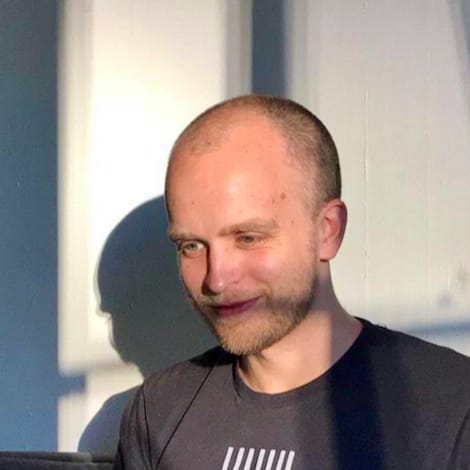
Ringo Schut is a visual anthropologist and Filmmaker based in Amsterdam. Growing up with a wide range of interests, he aims to combine various experiences and creative endeavours within his work, through the use of experimentation with colors, music and rhythms. His love for interviewing and film making, combined with his own experiences with mental health, brought him to Leiden University to work on this mental health film project in an ethnographic manner.
Een Groen Herstel by Max Kortekaas
Een Groen Herstel [A Green Recovery] is an ethnographic film about the LOP (Landscape Maintenance Project) of GGZ Rivierduinen. It follows the story of Chris alongside the work this group does. This project was started for young people with mental issues. While working with the group the members learn to work together with their colleagues, have structure in their lives and have responsibilities. While working for big organisations such as Staatsbosbeheer and Zuid-Hollands Landschap, the group needs to fulfil tasks in order to maintain the landscape. This includes cutting and winching trees, but also putting up fences and collecting garbage. The film is not situated in one place and explores both the group as the different nature-landscapes of the Netherlands. From dunes to meadows and from private estates to forests. Chris who is recovering from a psychosis tells his story and Liesbeth the activity counsellor tells how everything works.
Watch the movie
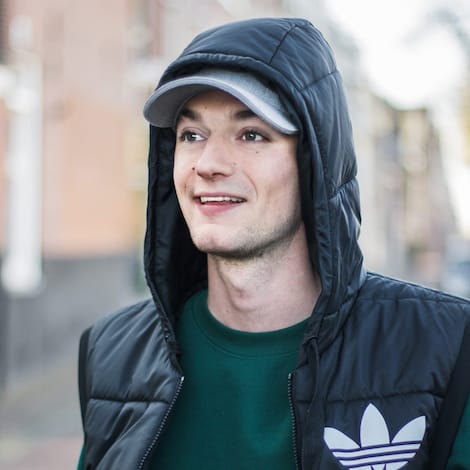
Max Kortekaas is a young visual anthropologist from the Netherlands. He is based in Leiden, where he has finished both his bachelor as master in Cultural Anthropology and Development Sciences. With Max being a mixture of open-mindedness and creativity, with a combination of energy and adrenaline always makes up for in-depth relations and beautiful stories.
Animal Intersection by Rodrigo Machado
In rural Portugal, the landscape tells a story about the development of humankind and wilderness. In recent decades, globalisation has been changing the ways human beings interact with the wilderness. Following the logic, wilderness turned into something to be commodified or conserved, but also it is something separated from humans.
Although many people think that humans are masters of nature, this position has been challenged by many social scholars that now debate novel methods to talk and understand wilderness. Animal Intersection: where animals meet, explores the relationship between humans and wild animals in Northern Portugal. The film portrait multiple practices to convey loose snippets that enact multiple human-wild animal relationships and how the wild animals come into being through filmmaking practices.
Watch the movie
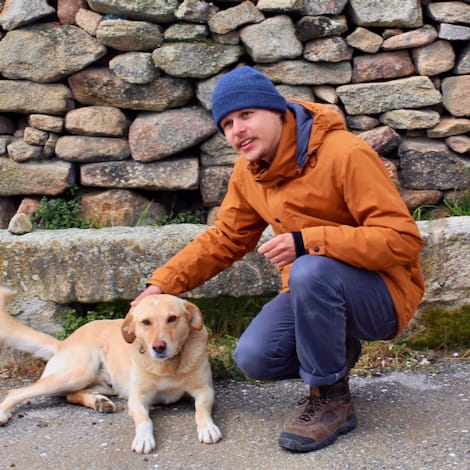
I am Rodrigo. Brazilian scholar with Master titles in Visual Ethnographic and Tourism and Environment. My researcher is grounded on ontological anthropology and visual practices, where I visually portrait how people enact the reality that they live. Through my work, I hope to not only portrait multiple realities but also to make the audience reflect on the ways their reality is enacted.
Moving Towards Visibility by Laura Molsbergen
The film provides a glimpse of the lives of three dancers, who are part of the wider ViaVia dance community in Arusha. They all have their own dreams to pursue, their own money to make to survive on a daily basis. As a unity, they share their passion for dance and the willingness to take their dance practices to a higher level. But the Tanzanian government and its people do not value dance for the development of the country. A-TOWN: Moving towards visibility shows how the dancers try to use their talent to escape the shadow and instead search for the spotlight to be seen by their fellow Tanzanians – but are they able to do so without the help from outsiders?
Watch the movie
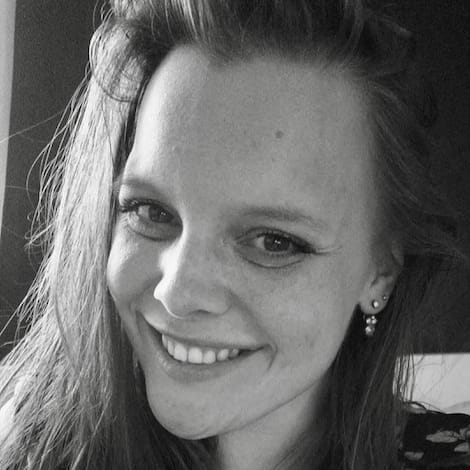
Laura Molsbergen is a young, creative human being based in Amsterdam, The Netherlands. She finished the minor Visual Anthropology during the Bachelor Cultural Anthropology and Developmental Sociology at the University of Amsterdam; and she did an internship at VPRO Metropolis in Hilversum. She recently completed her Masters Visual Ethnography in Leiden. Combining her passions in spoken word, dance and documentary filmmaking, Laura always explores rhythms that synchronize and clash as a metaphor for human relationships; as well as her own position and blind spots when she meets another culture or person.
Oung Sa: Eaten by Fire by César Colmant
“Ougn Sa: Eaten by Fire” is an ethnographic film by César Colmant. Indigenous populations of the Vietnamese Highlands are facing the radical shrinking of their agricultural land in the current capitalistic era and the consequential dependence on other sources of income. The film follows members of a transnational family dispersed between France and Vietnam in their attempt to secure livelihood and strive in the context of a fast pace development in Vietnam. Adopting the point of view of a distant family member, the filmmaker questions the role that transmigrants play in supporting their kin at home and the unexpected relationships which connect them transnationally.
Watch the movie
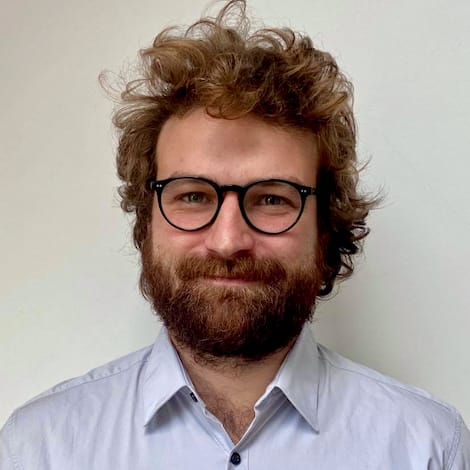
César Colmant: is a humanitarian aid worker and a Filmmaker from Brussels. César majored in Political Sciences and Law (undergrad.) before working as a field coordinator with migrants in Serbia. He founded the fundraising NGO “La Route des Défis” in 2016 which supports ground-based initiative throughout Europe.
Languages of Bonaire by Victor Navarro Izquierdo
Papiamentu is a creole language that was born during the slave trade era on the Caribbean islands of Aruba, Bonaire and Curaçao. The slaves used the languages of their different European colonizers such as Spanish, Dutch, English or Portuguese and created a new hybrid form of communication. Since then, Papiamentu has been the native language of the islanders. But Bonarians are also well known for being multilingual, they can easily switch between four languages. Today, their native language is thriving in new ways as new-coming immigrants are starting to learn it. In this documentary we will travel to the furthermost part of The Netherlands to discover the stories behind new speakers of Papiamentu on the island of Bonaire.
Watch the movie
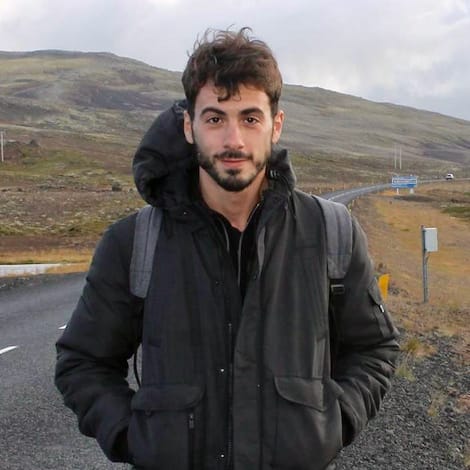
Victor is an anthropologist and documentary filmmaker based in Barcelona, Spain. He spent his first academic years studying migrants moving to Iceland who were learning Icelandic, researching on their motivations to learn this language and their experiences using it with native Icelanders. During his Master specialization in Visual Ethnography at Leiden University he has brought his research topic to the audio-visual format and to a different location, by filming a documentary about new speakers of Papiamentu on the island of Bonaire (Caribbean Netherlands). At the moment he is about to start his PhD at Autonomous University of Barcelona, where he expects to create an academic methodology to research the topic of language learners combining written and audio-visual formats.
Born on a Journey by Sandra Patiño
‘Born on a Journey’ depicts intimate portraits of three pregnant undocumented immigrants who have settled in the surrounding areas of Bogotá, Colombia. After leaving their families in Venezuela; Aura, Sabrina, and Sarai face new challenges in their new home as they navigate local policies and social networks to gain access to healthcare services. Throughout the film, they recall their experiences as undocumented immigrants and long with nostalgia for their families back in Venezuela as they try to build a new future in Colombia.
Watch the movie
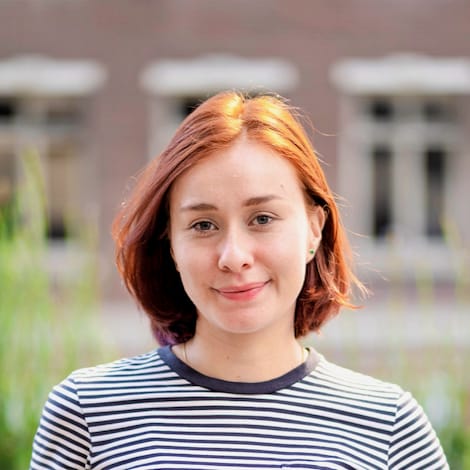
Sandra Patiño is a visual ethnographer based in San Francisco, United States. After finishing her bachelor’s in Cultural Anthropology in San Francisco, she went on to complete her Masters’ in Visual Ethnography in Leiden, The Netherlands. Born in Bogotá, Patiño’s interest in documentary film has been influenced by her upbringing and academic development. She is currently working on a personal project, a short documentary series that tells the story of human social relationships with plant-based food.
Escape to Psytrance by Victoria van den Berg
‘Escape to Psytrance’ is an introduction to the outdoor psytrance festivals in Cape Town. The history of Apartheid, and the development of Cape Town into a world city has led to the need for escape. The outdoor psytrance festivals have created a safe space where one can feel safe and create a sense of community.
Watch the movie
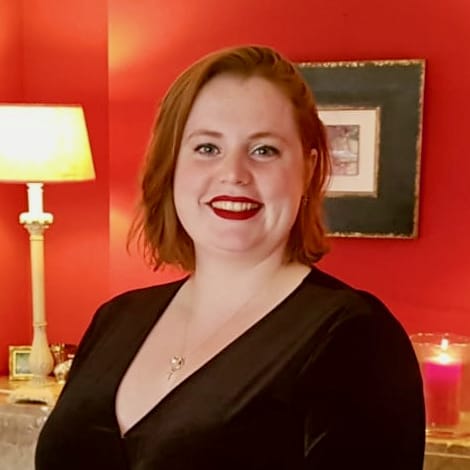
Victoria van den Berg is a visual anthropologist based in Leiden, the Netherlands. After finishing the bachelor Cultural Anthropology and Development Sociology in Leiden, she did the master Cultural Anthropology: Visual Ethnography at Leiden University. She specialised in music and digital communication, focusing on the influence of different music cultures on the global means of connection.
Paths Unknown by Jorn van Bladel
Paths Unknown: A short ethnographic film by Jorn van Bladel. By engaging with the ‘off-roader habitus’, paths unknown tries to find the interaction and connection between people, their vehicles, and the places they drive through, in the Australian off-road scene. The film is centred in the relationships and experiences shared between off-roaders and Jorn. Experiences that span from driving the vast distances Australia is known for, to the friendships and banter that come with working on vehicles which are constantly exposed to some of the roughest terrain traversable by car.
Watch the movie
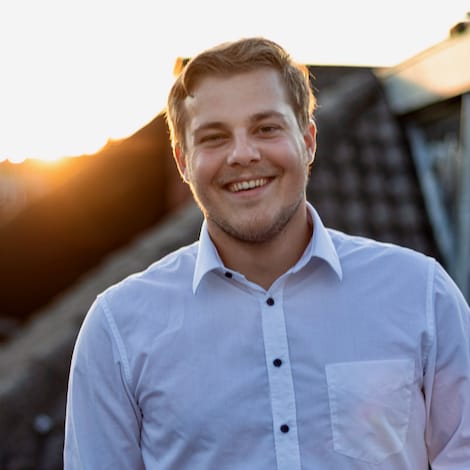
Jorn van Bladel is an ethnographer with a passion for filmmaking, digital and analogue photography, the great outdoors, and cars. Jorn is far from done with the off-roading scene, and aims to connect his involvement in it with his trainer as a photographer and cinematographer
Composing Freedom by Sarah Vasen
Music is more than just a sequence of sounds reaching our being. It can bring back memories, call up fantasies, dreams, feelings, and emotions. Music can destroy borders and connect us. Palestine has been under occupation since 1948, which impacts lives every day. Freedom is limited, because of restrictions within society and imposed identities by Israel. Inspired by her own experiences as a musician in the Netherlands, Sarah Vasen explores the meaning of music for young Palestinians. Does music open up for vulnerability within the hard realities of everyday life? How does music enrich the lives of the new generation in Palestine?
Watch the movie
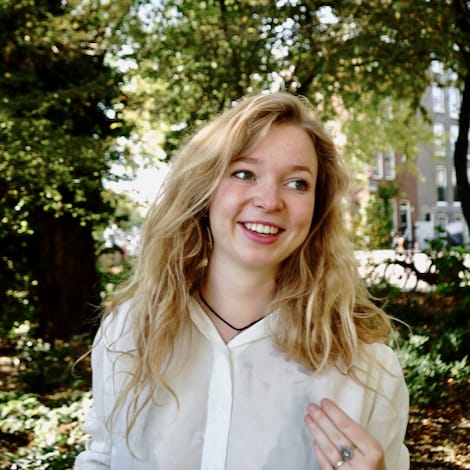
Sarah Vasen is a young documentary maker and Visual Anthropologist based in Amsterdam, the Netherlands. After graduating from her BA Media and Culture and MSc Visual Ethnography she wants to continue making films which highlight human qualities and similarities across the world, building on empathy instead of the aspects that divide us. Her first short documentary gives a glimpse into the life of a nomad in Tagounite, Morocco, which was shown at 2Doc: Makers van Morgen. During her second short documentary she asks herself how it is to be a student, especially a female student, in the Islamic Republic of Iran.Currently, she is learning Arabic and getting inspired for upcoming documentaries.
Our Village: ‘De Wallen’ by Eva Krol
The amount of tourists visiting Amsterdam is expanding with a million a year. Especially De Wallen, internationally known as the ‘Red Light District’, attracts many tourists with its image of ‘anything goes’. At the same time, this neighbourhood is the home of many residents struggling with the effects of neighbourhood change, influenced by the process of globalization and shaped by urban tourism. ‘Our Village: De Wallen’ shows how the desires for a stronger sense of belonging and a more liveable neighbourhood have led to greening initiatives by residents of De Wallen neighbourhood.
Watch the movie
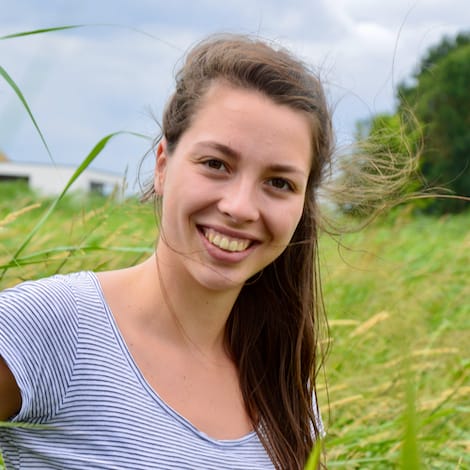
Eva Krol is a young documentary filmmaker and visual anthropologist based in Utrecht, The Netherlands. After a bachelor in Cultural Anthropology and Development Sociology in Utrecht, she started the master Visual Ethnography at Leiden University. Her first short documentary ‘Bangun Berdiri: Sta Op’ was shown at Pakhuis de Zwijger, after which she did a few productions for musea. Next year she will further develop her documentary filmmaking skills with an internship at production company De Familie Film & TV.
Surfing Frozen Oceans by Marcel El-Metwally
Surfing Frozen Oceans: An ethnographic shortfilm film by Marcel El-Metwally. By advertising nature based recreation, companies associated with the winter sport industry are inherently reliant on re-inscribing a dualistic nature/culture opposition. While nature is advertised as something ‘out there’, the practise of nature based recreation, offered by skiing resorts, is exercised in fully regulated human made spaces. By turning an infrastructural lens on the high alpine region, the practical ontologies of human and nonhuman co-creation are examined. While the practise of nature based recreation has positive effects on the environmental attitudes of practitioners, the ecological irony of winter sports tourism is stretched.
Watch the movie

Marcel El-Metwally is a Freelance Director and Filmmaker based in Utrecht. Marcel majored in Psychology (undergrad.) at Utrecht University and in Visual Ethnography (grad.) at Leiden University. In 2014 Marcel founded the company Native Art Films & Photography.
Entre Las Plantas by Mark Lindenberg
The film ‘Entre las Plantas’ (Among the Plants) portrays a Amazonian family who works and communicates with plants in order to help Peruvian and foreign people. In their garden they cultivate medicinal plants to heal and protect against negative energy. During the night, in ceremony, they communicate with the ‘mother of all plants’, Ayahuasca, who provides information on how to further help other people. With patience the filmmaker learns how plant, animal and human work together in this garden.
Watch the movie
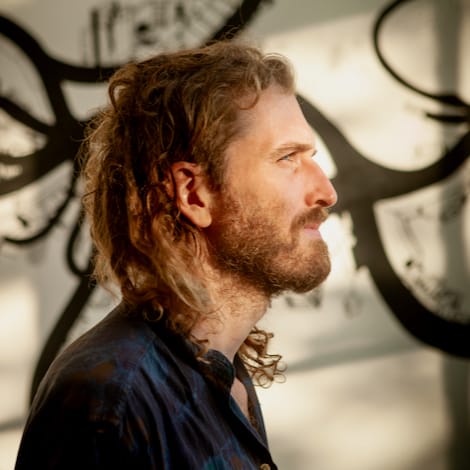
Mark Lindenberg is as a filmmaker and visual ethnographer, interested in making films that make the audience have a feeling of being there, stepping with him into a world unknown. He graduated as a cinematographer at the AHK – Filmacademy Amsterdam and combines his skills with his master study Visual Ethnography at Leiden University to make the ‘strange’ become understandable and familiar.
